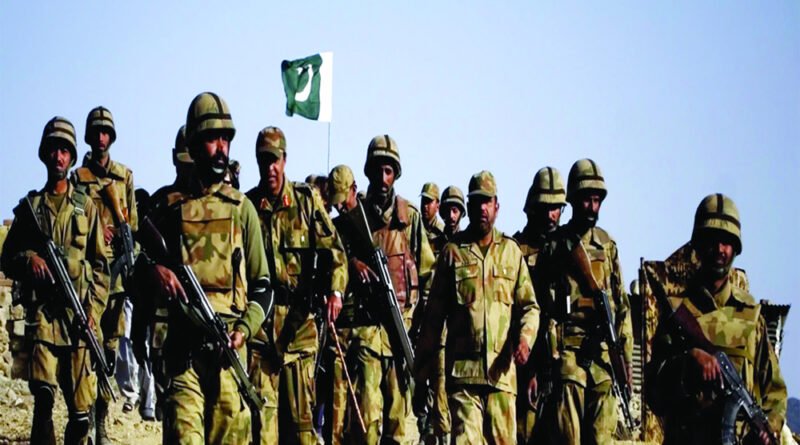US probing Pak’s role in Afghanistan
Ever since it became a sovereign nation, Pakistan has been ostensibly ‘helping’ the US to actually further its own interests in the region
The US is keenly looking into the role Pakistan played in Afghanistan after its war against Taliban and terrorism following the attacks on the World Trade Centre and Pentagon on September 11, 2001. This was revealed by US Secretary of State Tony Blinken to angry US lawmakers who were protesting against Pakistan’s “duplicitous” role in Afghanistan. Among others, Congressman Bill Keating, Chair, House Foreign Affairs Sub-Committee, said that apart from the ISI’s strong ties with the Haqqani network, Pakistan created the Taliban and helped it regroup in 2010. He bemoaned that the Pakistan PM celebrated the Taliban’s takeover of Kabul.
Pakistan started following a duplicitous policy towards the US soon after it came into existence in August 1947. In 1952, when the West was engaged in its efforts to contain Communism, Pakistan opted for the American bloc (and arms) purportedly to fight the expansion of Communism but actually to strengthen its muscle against India. Some years later, then Pakistan President Gen Ayub Khan said that the arms were “not to be kept wrapped”. These were actually used against India in the 1965 and 1971 wars even though given only to fight the expansion of Communism, if the need arose.
The erstwhile Soviet occupation of Afghanistan in 1979 had added to Pakistan’s strategic importance. It exploited the development dexterously to continue its special relationship with the US despite clear signs of duplicity and formal breakup of the Soviet Union in 1993. The US had turned Pakistan into a ground for Mujahideen fighting against the Soviet occupation of Afghanistan and a conduit for arms and funds to equip them with weaponry. Pakistan diverted a part of these arms to perpetrate terror in Kashmir and to train, equip and indoctrinate Pashtun students from Afghan refugees in Pakistan. The radicalisation programme started under then Pakistan President Gen Zia-ul Haq and was meant to address the ethnic divide because of which Pakistan had failed to have full sway in Afghanistan. Apart from fomenting terror in Kashmir, Pakistan’s main aim was to create Taliban Islamic Movement to acquire leverage in Afghanistan and to establish a commanding position, especially vis-a-vis India. But despite clear indications, the US appeared to connive with Pakistan’s ulterior motives to foster its own geopolitical and other interests.
The Soviet forces withdrew from Afghanistan in 1989 and the US too faded from the scene after ensuring that Pakistan had established its influence on the Mujahideen. After Soviet withdrawal, a civil war ensued in Afghanistan. Interspersed by its army, Pakistan introduced the Taliban militia in this civil war in November 1994. After wreaking havoc on hapless Afghans, the militia gained power in September 1996. With Saudi fugitive Osama bin Laden already present there and declaring jihad against the West, Afghanistan turned into a bastion of terrorism. Pakistan, with calculated use of terrorism as a tool of its State policy, had already become the epicentre of terrorism. India continued to caution the world, both in the UN and outside, about these dangers to world peace. In an article on October 2, 1999, titled “International Drive To Fight Terrorism”, the writer criticised the narrow American approach towards the Pak-Taliban nexus but the US did not heed the warning. Obviously, the ground had been laid for the September 11, 2001, terror attacks.
Following the horrifying attacks, the US waged a war against the Taliban. The public opinion in Pakistan was that its Government shouldn’t join this effort. When criticised for aligning with the West, then Pakistan President Gen Pervez Musharraf reportedly stated that had he not done so, America might have taken action against Pakistan, too. He was aware that their duplicity had begun to be noticed. The Taliban was soon removed from power. But, years later, Pakistan resumed helping the Taliban regroup. It turned into a haven for terror attacks on Afghanistan. Pakistan’s duplicitous attitude prompted former US President Donald Trump to say in 2019: “The US has foolishly given Pakistan more than $33 bn in aid over the last 15 years and they have given us nothing but lies and deceit, thinking of our leaders as fools.”
Obviously, now the inevitable has happened. Despite a positive sign or two, the Taliban’s resurgence poses a serious threat to peace. Radicalisation has been the main factor behind the Taliban’s rise. The challenge can be met by promotion of liberal Islam and Sufism. Though this section is a miniscule minority, Sufism has an eternal appeal and, with the passage of time and through encouragement, it can turn into a potential challenge to radicalism and extremism. As mentioned by this writer on October 8, 2016, in the article, “Islamic Radicalism and Sufi Islam”, Russia, like India, too was hit hard by Jihadi terrorism in Chechnya. But after dealing with the situation strongly, it encouraged liberal and Sufi Islam to root out the remnants of Jihadi terrorism. If Russia could do it, the rest of the world can also do it. For survival and the betterment of mankind, the world powers must desist from turning terrorism into a geopolitical issue.
(The writer is a journalist, former IIS officer and producer. The views expressed are personal.)
Source: PTI




